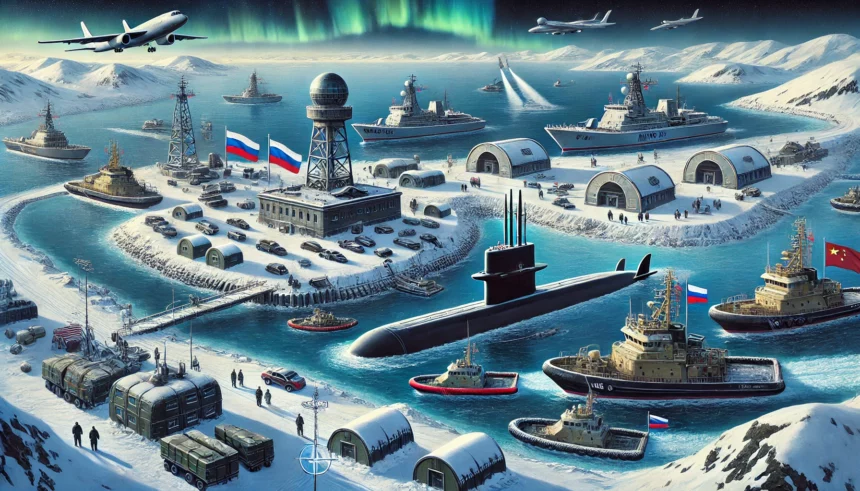Summary by Geopolist | Istanbul Center for Geopolitics:
The article provides an in-depth look at the intensifying strategic partnership between Russia and China in the Arctic, underscoring the threat it poses to NATO and the United States. This alliance is not new; both nations have been working to establish a foothold in the region for over a decade. However, recent joint military operations—such as the interception of Russian and Chinese bombers by American fighters in the U.S. Air Defense Identification Zone (ADIZ) over Alaska—signal an unprecedented level of coordination and assertiveness.
Russia’s primary goal is to protect its nuclear deterrence capabilities and secure its northern coastlines, stretching from the Barents Sea to the Bering Strait. The Kola Peninsula, a strategic location housing a significant portion of Russia’s nuclear submarine fleet, is particularly crucial. Moscow has heavily invested in building air defenses, missile technologies, and hardened submarine shelters in the region. As a result, the Arctic’s melting sea ice has opened up new economic opportunities, enabling Russia to commercialize shorter shipping routes between Asia and Europe. However, this has also increased the need for Moscow to monitor and control these maritime routes.
China, on the other hand, is using its Arctic engagement to bolster its own strategic capabilities while aiding Russia. The article highlights Beijing’s extensive deployment of dual-use technologies, including polar satellites, unmanned underwater vehicles, and research icebreakers. With the development of the “Polar Silk Road” and its investment in regional infrastructure, China is positioning itself as a key player in Arctic logistics and intelligence. By working together, Russia and China are able to better secure Russia’s ballistic missile submarine bases and establish a more robust monitoring system for the region.
The growing influence of Russia and China in the Arctic has left NATO and the U.S. in a difficult position. The West’s sparse infrastructure and limited capabilities in the region make it vulnerable to Russia’s precision-guided missile threats and China’s surveillance capabilities. NATO’s Arctic allies—Canada, Norway, and Denmark—are attempting to catch up by expanding their own military inventories and infrastructure. However, these nations face competing defense priorities, such as supporting Ukraine or ensuring the security of the Baltic Sea.
Given these complexities, NATO and the U.S. are now focused on developing a coordinated Arctic defense plan. The challenge lies not only in the physical buildup of assets but also in balancing the various strategic priorities of its Arctic allies. While the U.S. Department of Defense’s 2024 Arctic Strategy calls for closer cooperation, the article suggests that the West is on “thin ice” and must accelerate its efforts to counter Russia and China’s ambitions in the region.
Read the full article here.







